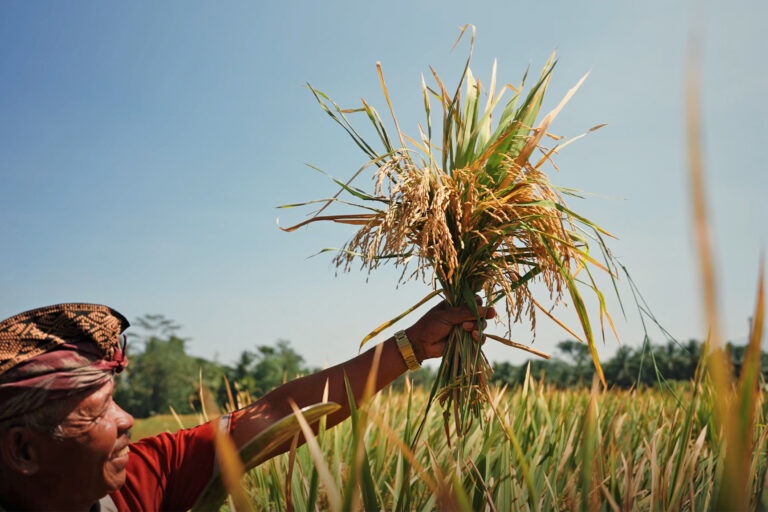Rice paddies are responsible for 11% of the world’s methane emissions. There are more than 200 million rice farms in Asia.
Working with local farmers, researchers in Bali, Indonesia, have discovered how to dramatically reduce the greenhouse gas emissions output of rice fields. Initial indications are showing a 70% reduction.
The farming breakthrough also boosted the yield of crops and reduced the amount of pesticides flowing to coral reefs.
From the article:
Results from a study by scientists I Wayan Alit Artha Wiguna of the Balai Pengkajian Teknologi Pertanian Bali and Steve Lansing of the Santa Fe Institute suggest changing irrigation methods could reduce the greenhouse gas (GHG) output of rice fields by 70%. Working in collaboration with farmers in Bali’s Tabanan regency, they found they could not only reduce GHG emissions but also use less water and boost crop yields.
Lansing, an ecological anthropologist, has studied Indonesia’s rice fields since he arrived in Bali in 1974 to work on his Ph.D. His focus was subak, a rice irrigation system managed by water temples, which had been in place since the 9th century until it was disrupted by the arrival of the Green Revolution in the 1960s and 1970s. Like their counterparts across the globe, Balinese farmers were encouraged to swap slow-growing local varieties for fast-growing hybrid rice, fertilizer and an extra harvest…
Stephen Wood, a soil scientist for The Nature Conservancy who reviewed the team’s research said via email: “The big issue is the potential for nitrous oxide emissions to increase when you do this practice, which can cancel out the benefits from reducing methane. What this paper shows is potential to reduce both methane and nitrous oxide.”
[More detail in article]
What Wood found particularly interesting was the study’s focus on farmer-driven irrigation approaches. “There is still a lot of room for further studies, but this study presents an interesting new approach that builds on how farmers manage their own irrigation and looks at net emissions, not just methane.”
The aim is that the scheme will now have nationwide adoption. Since the pilot project’s results have been revealed, the number of farmers taking part has risen to 40 in Subak Bena, plus a group of four organic farms run by the Begawan foundation near Ubud, where the scientists will continue their research.
According to the researchers, all they need to do to scale up is to spread the word. The primary barrier to entry for farmers is a 500,000 rupiah ($33) weeding machine.
As Wiguna is the instructor for an agricultural research agency in Bali, he can share their discoveries. Lansing has also been invited to COP28 in the UAE in December to talk about their research.


